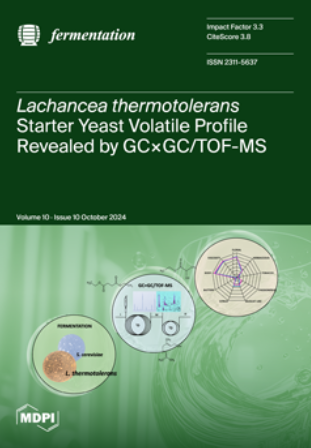醋酸法从工业废气中生产单细胞蛋白质:耦合发酵方法的技术经济分析
IF 3.3
3区 农林科学
Q2 BIOTECHNOLOGY & APPLIED MICROBIOLOGY
引用次数: 0
摘要
在向可持续循环经济过渡的过程中,利用工业废气的第三代生物精炼厂受到了极大的关注。然而,迄今为止,围绕其技术经济可行性的不确定性阻碍了广泛的商业化。本研究研究了以醋酸为中间体,通过高效耦合发酵的方法,从钢铁厂废气中生产单细胞蛋白(SCP),这是一种可持续的替代食品和饲料蛋白。开发了一个综合模型,包括气体制醋酸酯和醋酸酯制scp发酵过程,以及气体预处理和下游处理(DSP)操作,并用于进行技术经济分析(TEA)。敏感性分析表明,通过强化气体制乙酸发酵过程可以显著降低成本。因此,将乙酸浓度提高到45 g/L,产能提高到4 g/L/h,可能会将成本从4.15美元/kg降低到2.78美元/kg。此外,还讨论了生产规模和其他经济因素对废气基SCPs商业化的影响。最后,本研究通过确定关键的成本影响因素,为进一步优化醋酸酯平台提供目标,促进可持续和经济上可行的生物基创新,阐明了耦合发酵工艺用于SCP生产的实际可行性。本文章由计算机程序翻译,如有差异,请以英文原文为准。
Single-Cell Protein Production from Industrial Off-Gas through Acetate: Techno-Economic Analysis for a Coupled Fermentation Approach
Third-generation (3G) biorefineries harnessing industrial off-gases have received significant attention in the transition towards a sustainable circular economy. However, uncertainties surrounding their techno-economic feasibility are hampering widespread commercialization to date. This study investigates the production of single-cell protein (SCP), a sustainable alternative food and feed protein, from steel mill off-gas through an efficient coupled fermentation approach utilizing acetate as an intermediate. A comprehensive model that comprises both the gas-to-acetate and the acetate-to-SCP fermentation processes, as well as gas pretreatment and downstream processing (DSP) operations, was developed and used to perform a techno-economic analysis (TEA). Sensitivity analyses demonstrated that significant cost reductions can be achieved by the process intensification of the gas-to-acetate fermentation. As such, an increase in the acetate concentration to 45 g/L and productivity to 4 g/L/h could lead to a potential cost reduction from 4.15 to 2.78 USD/kg. In addition, the influence of the production scale and other economic considerations towards the commercialization of off-gas-based SCPs are discussed. Conclusively, this research sheds light on the practical viability of a coupled fermentation process for SCP production by identifying key cost-influencing factors and providing targets for further optimization of the acetate platform, fostering sustainable and economically feasible bio-based innovations.
求助全文
通过发布文献求助,成功后即可免费获取论文全文。
去求助
来源期刊

Fermentation-Basel
BIOTECHNOLOGY & APPLIED MICROBIOLOGY-
CiteScore
3.80
自引率
18.90%
发文量
594
审稿时长
7 weeks
期刊介绍:
Fermentation-Basel is an international open access journal published by MDPI, focusing on fermentation-related research, including new and emerging products, processes and technologies, such as biopharmaceuticals and biotech drugs. The journal enjoys a good reputation in the academic community and provides a high-impact forum for researchers in the field of bioengineering and applied microbiology.
 求助内容:
求助内容: 应助结果提醒方式:
应助结果提醒方式:


